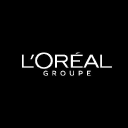L’Oréal’s Body Shop: Revenue Per Store Performance Cloudy Despite Prospects Of Sales, Margin Expansion
L’Oréal (OTC:LRLCY) is the world’s largest cosmetics manufacturer, with annual revenues of approximately $30 billion and a market capitalization close to $106 billion. The company derives a majority of revenues from skin care products at 27% of overall revenues, followed by make-up and hair care products at 20% and 19% respectively. In addition to its group sales, L’Oréal takes into calculation revenues from acquired brands such as The Body Shop, which it acquired in 2006 for £562 million, and Galderma, which it sold to Nestlé recently.
The Body Shop is a U.K.-based cosmetics manufacturer with a wide range of skin care, hair care and other fragrance products. Sales are made through a network of 2,900 company-owned and franchise stores in more than 60 countries globally. In the recently concluded FY13, The Body Shop reported consolidated sales of €836 million (~$1.11 billion). Comparatively, FY13 revenues were 2.3% lower on a reported Euro basis. In dollar terms, revenues for The Body Shop were 1% higher, boosted by a stronger Euro against the Dollar.
In this article, we take a look at various trends shaping The Body Shop’s business.
- Is There More Room For Growth In L’Oreal Stock?
- After Underperforming The Markets, Can L’Oreal Stock Rally?
- L’Oreal Stock Poised For Bounce Back After Rough Month?
- After Dismal Performance Last Month, L’Oreal Stock Looks Set To Rebound
- L’Oreal Stock Looks Set For A Rally On The Back Of Strong Earnings Growth
- Forecast Of The Day: L’Oreal Makeup Revenues
See Our Complete Analysis Of L’Oreal
Weak Sales Performance Induces Expansion In Franchise Store Base
According to our calculations, The Body Shop contributes to 1.7% of our L’Oréal valuation. The company had a total of 2,919 stores at the end of December 2013, of which 1,112 stores are operated by the company while 1,807 stores are operated by franchises across the world. Company-owned stores were relatively flat between 2012 and 2013, with 1,111 stores at the end of December 2012. Comparatively, its franchise store count grew by 81 outlets between the same period. This increase in franchise stores as opposed to company-owned stores indicates the Group’s stance towards the performance of The Body Shop.
In general, franchise stores have lower operating hurdles and generate higher profitability in comparison to company-owned stores. However, company-owned stores are crucial in setting and maintaining strong operating standards for the larger population of the franchise store base. Company-operated stores also help a retail chain maintain control over its product line and introduce new product offerings in a timely manner to hold a strong position against competition.
For The Body Shop chain, the expansion in franchise stores as opposed to company-owned stores is driven by its need to reduce operating expenses. Retail sales for the chain stood at approximately €1.4 billion (~$1.86 billion) in FY13 compared to €1.47 billion (~$1.89 billion) in FY12. This translates into a 4.9% decline in reported Euro terms. In dollar terms, the year-on-year decline in reported revenues tempered down to 2%. Like-for-like sales for the chain (i.e., adjusted for constant currencies and acquisitions and divestitures) were 0.3% higher for FY13. Given the weak top line performance from the chain in FY13, the shift in strategy to having more franchise stores has resulted in a marginal expansion in margins for the chain.
Acquisition Of Emporio Body Store Should Boost Overall The Body Shop Sales
The Body Shop’s revenue per store has declined at approximately 2.6% annually since fiscal 2007. At the end of fiscal 2007, revenue per store stood at $0.445 million, but this has slid down to $0.380 million at the end of fiscal 2013. Weak consumer demand for its product line, coupled with strong currency headwinds mainly in the emerging markets, has resulted in a year-on-year decline in sales for the company. Geographically, The Body Shop has a much larger presence in Asia-Pacific, the Middle East & Africa and Eastern Europe. Collectively, these ‘New Markets’ contributed to 49% of FY13 sales last year, followed by a 38% contribution from Western Europe. The remaining portion of sales is contributed by the North American market. Of these three geographies, the ‘New Markets’ region was the only region that reported like-for-like expansion in sales last fiscal.
The Body Shop operates as a standalone company despite being a part of the L’Oréal Group and has its own management team overseeing its operations. Recently, the company announced acquiring a controlling 51% stake in Brazilian skin care chain Emporio Body Store, with an option of increasing its stake to 80% by 2019, pertinent to certain operational conditions. [1] The Emporio chain has an estimated 130 points of sale in 58 cities in Brazil. Comparatively, the chain had 84 points of sale and a turnover of approximately $9 million in 2012. [2] Post acquisition, Emporio is expected to continue operating as a standalone company, with its present CEO, Tobais Chanan, in-charge of operations.
Although The Body Shop chain has a strong footprint in emerging markets, this acquisition marks its first entry into the Brazilian market. The Body Shop has no company-owned store base in Brazil, and strong competition and licensing laws in the country have resulted in no franchise presence for the chain. Hence, the acquisition should contribute to an acceleration in constant currency revenues for The Body Shop going forward. However, the performance of revenue per store depends on the individual performances of both these chains. We should be able to see the impact of additional stores from the Emporio chain on overall revenue per store in L’Oréal’s Q2FY14 results.
See More at Trefis | View Interactive Institutional Research (Powered by Trefis)
Get Trefis Technology
- The Body Shop finalizes the acquisition of 51% in Brazil’s Emporio Body Store, L’Oréal IR, December 2013 [↩]
- The Body Shop seals acquisition of Brazilian business Emporio Body Store, Cosmetics Design, December 2013 [↩]
